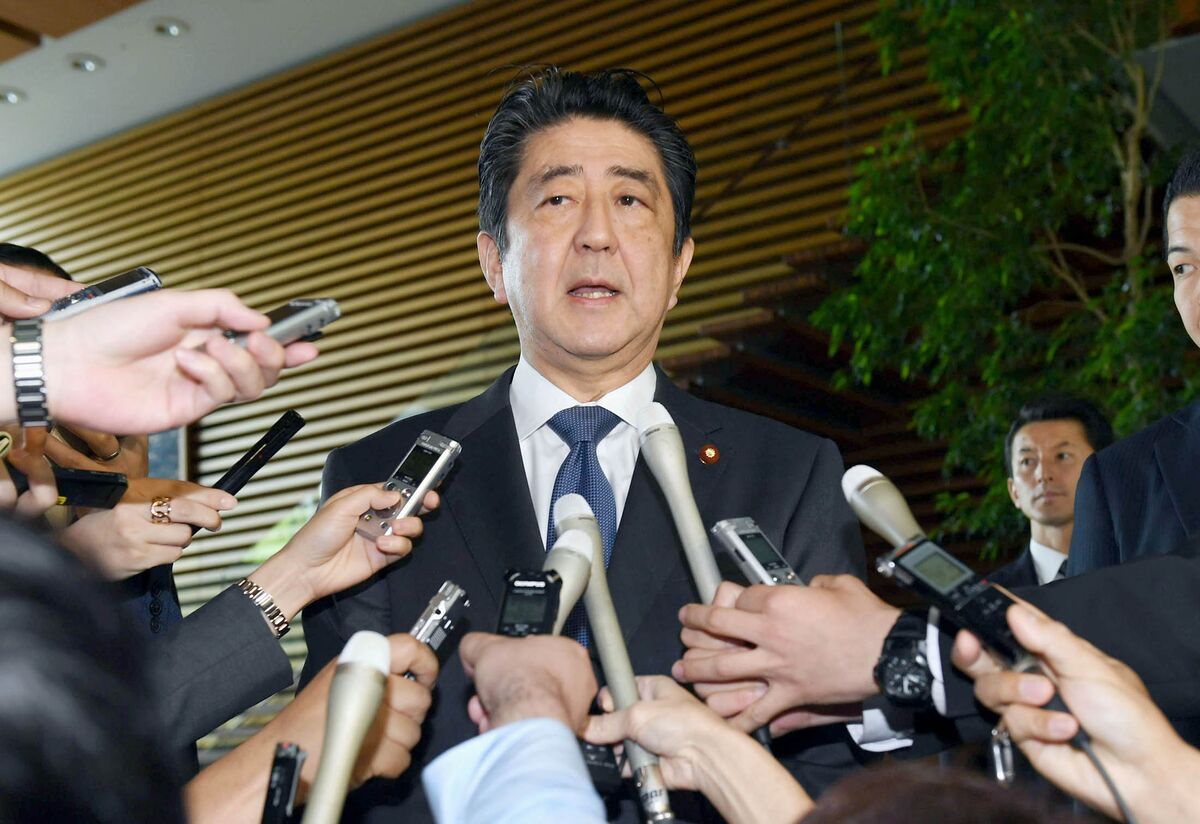
Japanese Prime Minister Shinzo Abe’s government passed controversial legislation that gives prosecutors the power to monitor and arrest people in the planning stages of crimes.
As dawn broke in Tokyo on Thursday, bleary-eyed lawmakers voted to pass the so-called anti-conspiracy bill, which the government says is needed to bolster counter-terrorism precautions ahead of the 2020 Tokyo Olympics. Opposition lawmakers pulled out an array of political tricks to delay the vote until morning.
Under the bill, terrorist groups or criminal organizations could be punished for the planning of 277 crimes, which range from arson to copyright violation. Critics say the legislation is vague and could lead to the suppression of civil liberties and excessive state surveillance.
The legislative win paves the way for Abe to push ahead with his long-held ambition to revise the pacifist constitution that has defined Japan’s security policy since World War II. Last month, he proposed an amendment to recognize the existence of Japan’s Self-Defense Forces while maintaining Article 9, which renounces the right to war and prohibits land, sea and air forces. He wants the change to take effect by 2020.
“This fits Abe’s agenda in the run-up to a prospective national referendum on constitutional revision, and Japan’s possible involvement in future wars,” said Koichi Nakano, professor of political science at Sophia University in Tokyo. “Both of these would require new means to control unruly citizens who object to government decisions.”
Helped by a stable economy, Abe’s support has remained resilient throughout his four-and-a-half years in office. Despite public ambiguity toward his drive to change the constitution and a probe into his alleged use of influence in helping a friend’s school project, his approval rating has remained around or above 50 percent for several years in the face of feckless opposition.
UN Concern
Abe told reporters in Tokyo on Thursday that the bill was passed to prevent terrorism and would be an appropriate, effective way to protect the lives of Japanese people, according to the Nikkei newspaper. In 2013, he secured passage of a bill that grants the government sweeping powers to declare state secrets, and two years ago he weathered protests in pushing through laws to expand the powers of Japan’s military.
Joseph Cannataci, the United Nation’s special rapporteur on the right to privacy, wrote an open letter to Abe last month expressing concern about increased surveillance under the anti-conspiracy bill. Chief Cabinet Secretary Yoshihide Suga said the letter was “inappropriate” and denied that the law would lead to excessive surveillance.
Thousands of demonstrators gathered outside parliament on Wednesday night to voice opposition to the bill. The general public is split on the need for the law, with about 40 percent in favor and the same proportion against it in a Kyodo News poll conducted last month. More than 77 percent said further explanation was needed.
Read more about Abe’s drive to bolster Japan’s military
Some senior figures in Abe’s ruling Liberal Democratic Party have spoken out against rushing into a constitutional change, the next major item on Abe’s agenda. Others are concerned that he may take his eye off the ball when it comes to reviving the economy or dealing with Japan’s sliding population.
“The government shouldn’t use all its energy on constitutional debate,” Shigeru Ishiba, a senior LDP lawmaker who favors constitutional change, told reporters in Tokyo on Wednesday. “The party has to have a debate on what to prioritize, be it social policy, economic policy or the constitution.


0 comments:
Post a Comment